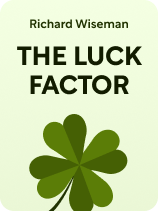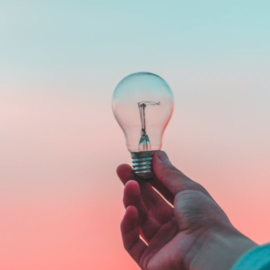

This article is an excerpt from the Shortform book guide to "The Luck Factor" by Richard Wiseman. Shortform has the world's best summaries and analyses of books you should be reading.
Like this article? Sign up for a free trial here.
What’s the psychology behind following your gut? How is intuition like a muscle?
We’ve all been told to “trust your gut feeling” at some point in our lives. Psychologist Richard Wiseman explains why this is important and why you should never ignore warning signals.
Continue reading to learn more about following your gut, from the book The Luck Factor.
Trusting Your Feelings
People who think of themselves as lucky tend to trust their intuition more than those who don’t. As a result, they enhance their luck by making, on average, better decisions—both in their personal and professional lives—and are more likely to engage in activities that improve their intuitive skills.
Wiseman says there’s nothing magical about intuition and gut feelings. Rather, hunches and instincts are often the result of your brain’s unconscious pattern recognition skills. A great deal of psychological research has shown that our unconscious minds influence our choices, and our brains developed to work that way for a reason. Intuitive hunches are one way that our brains streamline the decision-making process, and Wiseman’s research found that unlucky people often ignore the warning signals their intuition sends them, whereas people who seem to have luck on their side are more willing to follow their instincts.
(Shortform note: Intuition is a powerful tool, but the drawback is that it isn’t always right. In Blink, Malcolm Gladwell explains that intuition works when your unconscious mind finds patterns based on small snapshots of experience while ignoring superficial details. However, Gladwell says that intuition backfires when your unconscious gets distracted by superficial details, such as deciding that someone is trustworthy because they’re wearing a nice suit. In this way, intuition lets us fall prey to biases we don’t even know we have. Wiseman’s findings reflect that intuition works more often than not, hence the evolutionary advantage it gives our species, but it isn’t 100%—you still have to balance intuition with logic.)
Wiseman cites numerous case studies demonstrating that people who follow their hunches fare better in personal relationships, career choices, and financial decisions. For instance, if you meet someone on a blind date, you may immediately feel an energetic connection—or you might feel that something’s “off” about the person. The same scenario may come up during a job interview—you might get a positive feeling about the other person, or something in the back of your mind might tell you that they’re not someone you want to work with. When following these hunches leads to a good decision, you might attribute your outcomes to luck when in fact your unconscious was just doing its job.

———End of Preview———
Like what you just read? Read the rest of the world's best book summary and analysis of Richard Wiseman's "The Luck Factor" at Shortform.
Here's what you'll find in our full The Luck Factor summary:
- The unconscious methods lucky people use
- The benefits of trusting your intuitive hunches
- The scientific explanation as to whether or not luck is real






